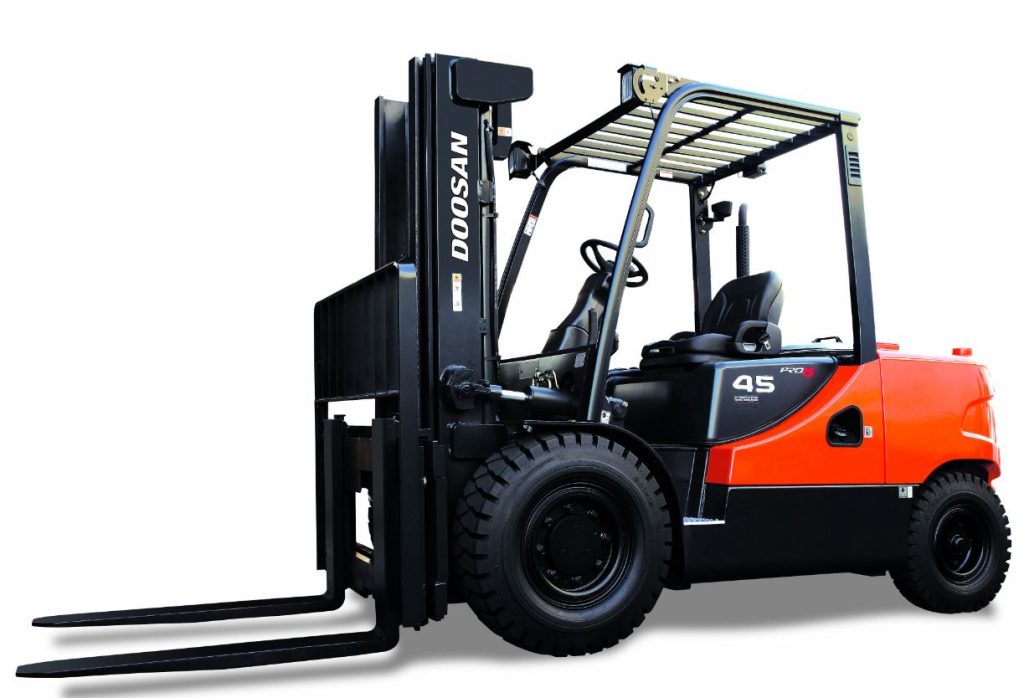
If you’re looking for a forklift you’ll know there are many forklift types. Aside from different types of forklift truck specification, weight limits, and applications, there are also different fuel types to consider. At Fork Truck Direct we offer all of them, for both sale and hire.
So, when you’re deciding whether to rent or purchase a diesel, LPG, or electric forklift from us, what should you consider?
LPG forklift trucks
Gas forklifts are those that run on LPG (Liquid Petroleum Gas) and are becoming one of the more popular types of forklift trucks. One of the reasons for this popularity is because they’re highly flexible, offering fuel efficiency and consistent power delivery in both internal and external environments.
LPG forklift benefits
If you’re considering LPG as a fuel type when thinking about forklift rental, you can enjoy the following benefits:
Versatility
LPG forklifts are suitable for both internal and external applications. They offer the robust reliability of diesel engines, without the worries regarding emissions, which means you can use them outside and in confined warehouse and factory environments equally easily.
No recharge time
LPG forklifts can be fuelled in a matter of moments, which can give them an advantage over an equivalent electric truck. Rather than being charged, the refilling process for LPG is no longer than it takes to fuel with a more conventional fuel, which helps minimise downtime.
Gas forklift disadvantages
As with any piece of machinery, LPG forklifts have their drawbacks as well as their benefits. Here are some you need to consider:
Maintenance and fuel costs
LPG forklifts are usually cheaper to buy than diesel or electric versions, however, they have the risk to carry higher maintenance costs as the LPG fuel system can be complex. There is also the cost of the gas itself to factor in, which can be more expensive to buy than diesel.
Risk of fuel running out and leaks – gas forklifts often don’t have an internal fuel gauge, meaning it’s easier for operators to be caught out and run out of fuel mid-shift. A risk of gas leaks also means that LPG trucks are generally not suited to certain industries, such as pharmaceutical and food.
Diesel forklift trucks
Diesel is the most popular and longest established choice when it comes to forklift fuels, and there’s good reason. Diesel is still relatively cheap, for now, meaning they’re cheap to keep fuelled, and the relative reliability and affordability of diesel engines still make them a popular choice for those demanding durability.
Diesel forklift benefits
Robust and reliable – diesel forklifts can be ideal for use in harsh outdoor environments as they’re durable and long-lasting. Similarly, there is a minimal risk of losing power altogether, which is a serious consideration when the use of hydraulic attachments such as forward tippers, fork spreaders, and rotating clamps.
Affordable servicing – the popularity and common usage of diesel means that maintenance and servicing costs are relatively low. They are also reasonably easy to repair, which means if there is a fault you can generally get away with replacing a part, rather than having to replace the whole power train or truck itself.
Diesel forklift drawbacks
Emissions – diesel emissions make diesel forklifts unsuitable for use in enclosed or indoor areas. This can be mitigated somewhat by appropriate use of catalytic converters and other emissions technology, but ultimately diesels are still much more of a risk to health in a confined environment than electric or gas forklifts.
Size and noise – the space required for the diesel engine generally makes diesel forklifts the largest option, regardless of weight carrying capacity. Similarly, you also need to take into account the fact that diesel engines are noisy, which means any operators are going to need to wear appropriate ear protection which you must provide.
Electric powered forklifts
As electric technology continues to improve and develop, electric forklifts are becoming an increasingly popular choice for many industries.
Electric forklift benefits
Lack of emissions and noise – electric forklifts do not have exhaust pipes, which makes them ideal for use indoors as there are no emissions to consider. Similarly, electric forklifts are virtually silent in operation, which can improve the quality of life of operators and other employees working on site.
Cheap fuelling – the cost of electricity is considerably lower than the cost of diesel or LPG, which makes refuelling an electric truck the most affordable choice. Also, consider investing in renewable energy production such as solar panels, and you can even potentially fuel your electric forklifts for free.
Electric forklift downsides
Higher purchase price – electric forklifts are generally more expensive than their fossil-fuelled counterparts. This is because the technology is still much newer and electric forklifts are comparatively niche, meaning that manufacturers can’t scale down the cost of production and pass on those savings to you, yet.
Limited range – electric forklifts have a limited range and can take longer to recharge. In many cases, charging must be done overnight, which is inconvenient. You can get around this by buying replacement removable battery packs which allow for 24-hour operation, but ultimately will increase the purchase price.
Whichever your choice, contact Fork Truck Direct
Whether forklift hire means diesel, LPG, or electric for you, make sure to choose Fork Truck Direct. We have all fuel types available, with weight limits from 1-16 tonnes. For forklift truck hire you can trust, contact Fork Truck Direct.